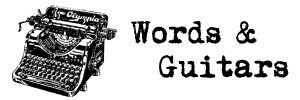Anjou – Epithymía

It’s hard not to listen to Anjou’s new album without feeling keenly aware of the past I bring to it. In the late nineties when post-rock appeared to be the new rising sun of guitar-based music – before we all realised the guitar’s dominance was a thing of the past – I made a note to delve further into a band called Labradford and their intriguingly blurry approach to the terrain. Alas, this fruitful time saw potential new favourites pierce the horizon every month, and Labradford quietly disappeared in 2001: I never went back. So, sixteen years too late, without that aural history, I find Anjou: an ambient electronica duo featuring former-Labradford members Mark Nelson and Robert Donne.
In an overpopulated field, sure, there are aspects of Epithymía that are inescapably familiar – but it would be churlish to make that a criticism when they do it so well. For example, the two brief interludes seguing between the lengthy 10-15 minute tracks are a standard move but both ‘Greater Grand Crossing’ and ‘Glamr’ are both gorgeous: darkly sinuous liquid pulses pour through shuffling, arhythmic collisions. Then we’re into well-executed genre exercises: the audio accompaniment to imagined locales (‘Georgia’); a soundtrack to an unmade film (‘An Empty Bank’); atmosphere evoked via track titles such as ‘Soucouyant’ (a Caribbean supernatural legend, a witch who enters a person’s home at night and sucks their blood) which seems to focus on the legend’s means of motion, a bobbing array of bright shades beating onward across its running length.
Anjoy’s most attractive and distinctive feature is their willingness to present unashamed beauty in a genre that often prefers to skulk and unsettle. Opener ‘Culcinae’ sits atop a comforting burble of bass hum, augments it with occasional flute-like melodies, before allowing in a distinctly physical and tangibly real shimmer of cymbals which them doubles, triples, multiples into pealing crests of light percussion. Everything changes from around the ten minute mark where we’re into the amplified crackle of needle on empty groove before being overtaken by an anthemic finale in which keyboard tones stretch upward toward the sky over firmly beaten strings.

